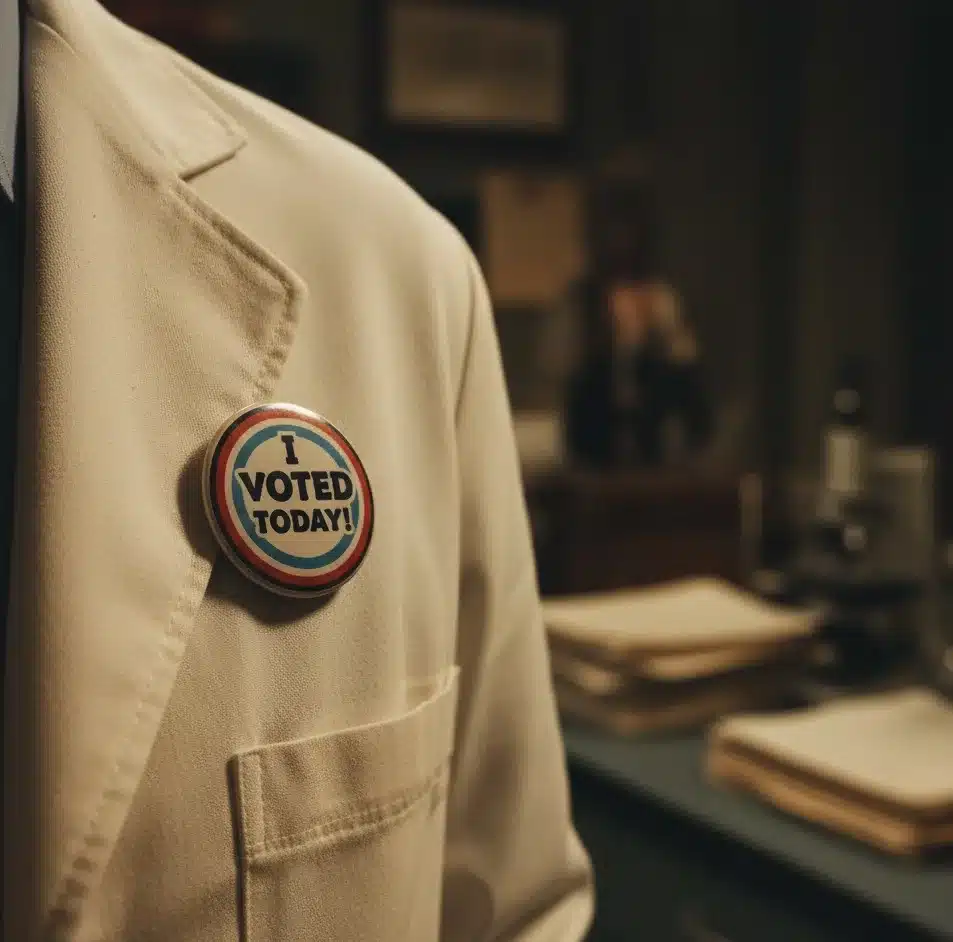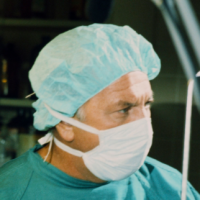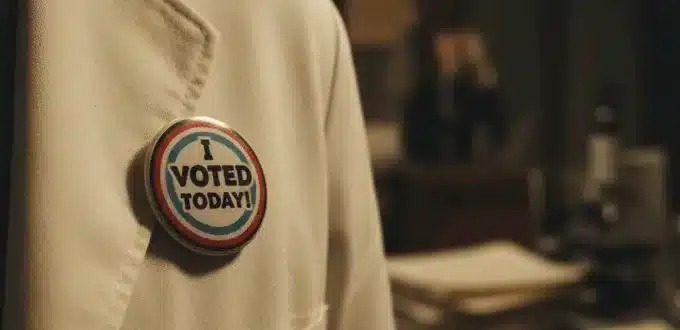“Truth matters. Accountability matters. And yes — participation matters.”
— Dr. Quincy, Quincy, M.E.
Tomorrow’s Election, Yesterday’s Lesson

Tomorrow, November 4, marks Election Day across the country. As the nation prepares to cast ballots, we at The Quincy Examiner can’t help but recall one of the series’ most strikingly civic episodes — “Death Casts a Vote”, first aired October 21, 1977, during Season 2 of Quincy, M.E.
In the episode, a young union worker is found dead in his car, seemingly the victim of suicide by carbon monoxide poisoning. But as Dr. Quincy investigates, the autopsy reveals that this was not suicide at all — it was homicide staged to look like suicide. The case quickly entangles Quincy in a web of union politics, rival labor leaders, mob influence, and immigrant labor forces, all of whom have potential motives for murder.
When Quincy calls a press conference, he publicly expresses skepticism that the death was self-inflicted, setting off a tense struggle between civic duty, public perception, and criminal investigation. The episode cleverly blends forensic science with societal and political responsibility, making it a perfect reminder that democracy and accountability extend beyond the ballot box.
📺 Explore the episode on the official QME Wiki:
QME Wiki – “Death Casts a Vote”
Would Quincy Be the First in Line — or the Last to Leave?

That raises a question for tomorrow’s voters: If Quincy were walking into the polling station today, would he be first in line before sunrise, coffee in hand, before stepping into the coroner’s office?
Or would he vote after a long day of dissecting the truth, cataloguing evidence, and untangling layers of deceit in the murder investigation?
Either scenario fits his character perfectly. One shows discipline — the man who starts early, evidence-first. The other shows dedication — the man who finishes what must be done, no matter how long it takes.
Politics, Pathology, and Participation
“Death Casts a Vote” isn’t just about a single death — it’s about the interplay between labor, law, and civic duty. The young union worker’s death becomes a lens for examining political maneuvering, social justice, and personal responsibility.
As Quincy painstakingly uncovers the truth, the episode reminds us that every act of civic participation, including voting, is part of a larger system of accountability. Just like an autopsy exposes hidden facts, every ballot contributes to the transparency and health of our democracy.
A Morgue Worker’s Dilemma
Tomorrow morning, as dawn breaks and the first polling machines hum to life, some real-world Quincys — pathologists, nurses, first responders, and night-shift public servants — will face a familiar choice:
Before the shift or after the shift?
The important thing is that they vote. Because as Quincy would remind us, “What matters isn’t when you show up — it’s that you show up.”
Episode Reference
- Title: “Death Casts a Vote”
- Season: 2, Episode 4
- Original Air Date: October 21, 1977
- Director: Ron Satlof
- Writers: Lou Shaw, Sam Egan
- Plot Summary: Quincy investigates the death of a political campaign worker, uncovering election corruption that reaches city hall.
- More Info: Wikipedia Entry – Quincy, M.E. Season 2
🗳️ Final Thought
Whether he’s testing tissue samples or navigating the complexities of civic and social responsibility, Dr. Quincy remains the model of professional duty — a reminder that truth, like democracy, only survives through active participation.
So tomorrow, before or after work, go vote.
It’s what Quincy would do.

Chief online influencer of all things Quincy. Currently, I operate as a content creator & editor to The Quincy Examiner – Online Home to the godfather of all today’s forensic detective TV series. When time permits, I run the gauntlet with young and old family members as we surpass this post-COVID pandemic! I follow up with all communication but the social links below are probably the best way to find me quickly! Enjoy the site and come back again soon… that’s doctor’s orders! Be well!

No Comments Yet